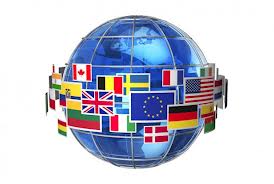Who will be benefited by the agreement between the 29 major drug companies and INTERPOL against the counterfeit drug?

Manufacturing, trade and distributions of the fake medicines and instruments are of major concern to the “World Health Organization” (WHO) and world’s top ranked pharmaceutical companies. According to their observations, about 10-30 percent of the drug market has been captured by the fake drug manufacturers. The fake drug contains too little or too much active major ingredients. The use of the fake drugs is creating a major health risks in these countries. The genuine drug manufacturers are losing their business for this type of criminal activity. Big pharmaceutical companies were thinking about creating a mechanism to dismantle the drug rackets and illegal cross border trading of counterfeit drugs.
Paris based international investigative agency INTERPOL Secretary General Ronald K. Noble said: “With no country, no drug, no medical product immune from counterfeiting, a global effort is needed to combat this threat which puts the lives of millions of people at risk every single day”. In this scenario, world’s 29 large pharmaceutical companies have signed a landmark agreement with the Interpol to combat the menace of fake drugs. Novartis, Roche, Bayer, Abbott and Glaxo Smithline are some of the internationally renowned pharmaceutical companies who have signed to participate in the program. However, the local drug manufactures of India and other developed countries have raised their concerns about the agreement. There is genuine reason behind their concerns. In the past few years, original genetic drugs from India and other countries have been confiscated at the various airports of European countries labeling the genetic drug as fake.
The most interesting fact is that the confiscated drugs were shipped out for another developing country. The Indian Government spokesperson says that the seizure of high quality generic and the off-patent drugs manufactured by the domestic companies of the developing countries has become a regular practice in the European counties. It cannot be allowed as this practice is seriously hindering the access to the cheap drugs by the poor.
The domestic pharmaceutical companies of the developing countries raised objections to the definition of fake drugs defined by WTO. They also alleged that the main intention of the agreement is to ruin the domestic genetic drug manufacturing companies. They pointed out that none of the 29 signatories manufacture the genetic drugs and they sell the branded medicine at an unreasonable exorbitant price in the third world countries. The main advantage of the genetic drug is that the price of it is much lower than the branded drug. Therefore, the poor people can afford it. “World Health Organization” (WHO) recently defined the counterfeit drug as “a medicine, which is deliberately and fraudulently mislabeled with respect to identity and/or source.

Counterfeiting can apply to both branded and generic products and counterfeit products may include products with the correct ingredients or with the wrong ingredients, without active ingredients, with insufficient active ingredients or with fake packaging. In Jun 2012, India, Brazil and China jointly defended the rights of poor to access the cheap genetic drugs at WTO. In the meeting of trade-related aspects of intellectual property rights (TRIPS), the representative of the developed countries argued that the substandard ingredients of counterfeit drugs put the lives of the patients at risks.
On the other hand, the developing nations argued that WHO is not a proper forum for the discussion of counterfeit drugs. They said that the infringement of “intellectual property rights” (IPR) and substandard products are completely different issues. If the domestic manufacturers use the same formula and process for manufacturing genetic drug, it will be dealt by the “TRIPS” agreement. For more information, you may contact Lex Protector.
